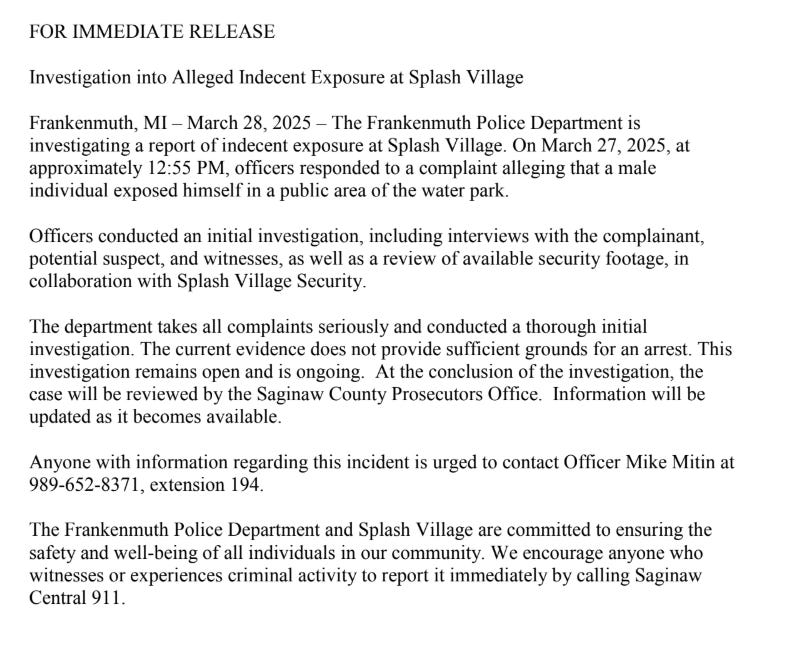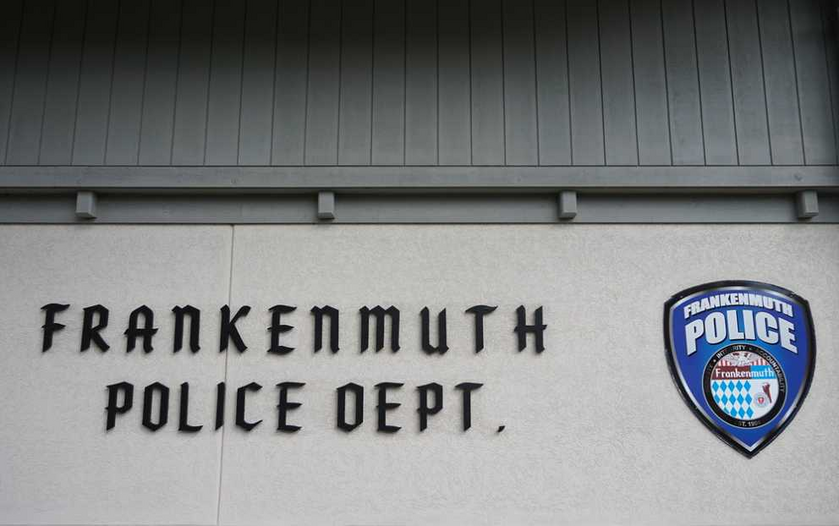FRANKENMUTH, Mich - Frankenmuth, Michigan Police are investigating after Amber Archuleta reported witnessing a man expose himself to a child at Zehnder’s Splash Village.
Archuleta tells me the incident happened at the “kiddie hot tub”.
Archuleta said in a viral Facebook post, “An older man was standing slightly above the child. I saw the older man reach into his shorts. I thought maybe he was “adjusting himself” as men sometimes need to. The man then pulled out his genitals and told the little to boy to look, which he did.”
Frankenmuth Police did respond and interview the woman.
The following is the statement just released from Frankenmuth Police:

Support my independent journalism by becoming a paid subscriber. I can’t do my work without all of you.
Frankenmuth Police say officers responded around 12:55 p.m. and conducted interviews with the complainant, the suspect, and witnesses, and reviewed security footage with park staff.
Police say there is currently not enough evidence to make an arrest, but the investigation remains open. The case will be reviewed by the Saginaw County Prosecutor’s Office once complete. Anyone with information is urged to contact Officer Mike Mitin at 989-652-8371, ext. 194.
Police have not released any names of any alleged suspects. There is a picture going around on social media that Frankenmuth's Police Chief says is not the person allegedly involved.
John Shleton from Splash Village released the following statement adding the boy is the grandson to the alleged perpetrator. The following is his complete statement:

Amber Archuleta released the following statement upon learning that no charges will be filed.
I want to take the opportunity to say that just because my statement was not enough for an arrest, the camera footage of him doing "Something" wasn't at a great enough angle for an arrest. But to all of those you who know right from wrong, rallying for justice, means something. To the little boys parents, I am so sorry that I could not protect him. Everything happened very quickly & I just want you to know that little boy is why awareness has been spread. I urge Zhenders to revamp trainings and invests in making Zhenders the safest waterpark for kids in Michigan. To the very first girl working there that I notified. Thank you! I don't know your name. To security, they know where I stand. Thank you all. Awareness is key."
I have reached out to Zehnder's Splash Village as have not yet heard back from them.




















